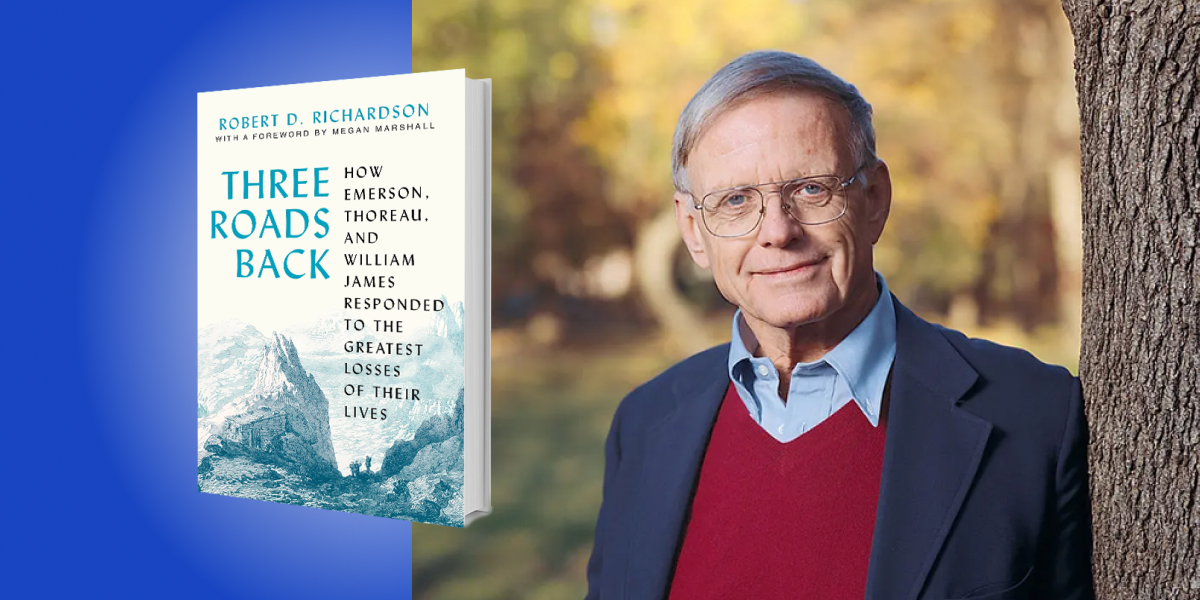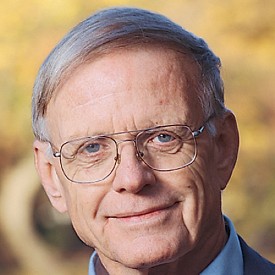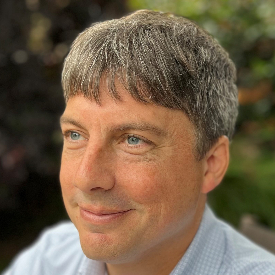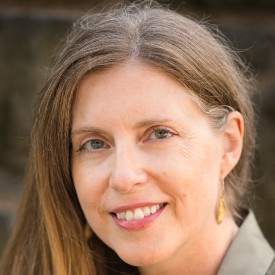Robert Richardson was the author of acclaimed biographies of William James, Henry Thoreau, and Ralph Waldo Emerson. He was a recipient of the Bancroft and Francis Parkman prizes and a finalist for the National Book Critics Circle Award.
Book bite narrated by John Kaag, philosophy professor and celebrated author of American Philosophy: A Love Story, Hiking with Nietzsche, and Sick Souls, Healthy Minds: How William James Can Save Your Life.
Below, are 5 key insights from Robert’s new book, Three Roads Back: How Emerson, Thoreau, and William James Responded to the Greatest Losses of Their Lives. Listen to the audio version—read by John—in the Next Big Idea App.
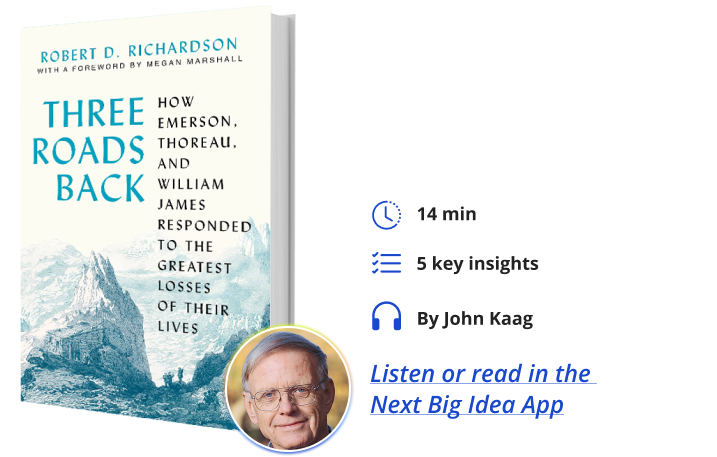
1. Despite being normally categorized as optimists, these three great thinkers were essentially responding to the philosophical problem of evil.
Theologically framed, this problem really amounts to the fact that bad things happen to very good people, and why would an all-powerful, all-knowing, and omnibenevolent God allow these things to happen? For Emerson, Thoreau and James, bad things did happen. For Emerson, his first encounter with tragedy was probably with the death of his own father to stomach cancer when Emerson was just a boy. Another dark episode in Emerson’s life is the loss of his first wife, Ellen, when she was only 19. With Thoreau, we have the loss of his brother, John, who contracted gangrene and died of lockjaw in Henry David Thoreau’s arms. With William James, we have the loss of his cousin Minny Temple. While these three men are frequently described as ebullient, Promethean, forward-looking, optimistic philosophers, we oftentimes miss that their thoughts emerge from almost utter darkness.
2. The problem of evil can be responded to on a non-theological or at least a non-traditional theological framework.
In all three cases, these thinkers respond to loss and tragedy. This response is founded in the need to understand or come to grips with evil—evil being the seemingly senseless fate that humans take from birth to the grave, very quickly, unexpectedly, and brutally.
“Each of them, in their own ways, is trying to figure out how human life can be worth living, how human life can be beautiful and redeemable, despite the darkness that each of us face.”
What’s interesting about Emerson and Thoreau and William James is that the problem of evil can be responded to on a non-theological or at least a non-traditional theological framework. Working in the 19th century, thinkers like Emerson, Thoreau, and James did not have the strict Calvinist or strict Protestant theology of the previous century. Each of them, in their own ways, is trying to figure out how human life can be worth living, how human life can be beautiful and redeemable, despite the darkness that each of us face.
3. Nature’s brutality is actually redemptive.
At the time of his first wife’s death at the age of 19, young Emerson was a minister at Second Church in Boston. Emerson struggled with traditional theology, and in fact, he left the church very rapidly after the death of Ellen.
One of the more gruesome points in Emerson’s life was his pilgrimages back and forth between Boston and Roxbury to see Ellen’s grave. On one of these trips, Emerson uncovers the tombstone and looks into the grave. At that point, he decides to leave the church. Months after that, we find Emerson in Paris, examining the plants in the town or city gardens.
This exploration leads him to the conclusion that nature, which seems so tooth and claw, so brutal, taking people from us when we least expect it to, is in fact redemptive. This is what Emerson discovers in the garden in Paris. Emerson says that we must return to nature if we are to save ourselves. This return to nature reveals both the beauty, but also the discipline and commodity of nature. We are to find some sort of respite, some sort of comfort in the fact that nature has a particular order and a beautiful one. That’s the root of the word cosmos according to Emerson, but also to the Ancient Greeks, of beauty.
4. The wildness of nature is the heart of the preservation of the world.
Henry David Thoreau, after watching his brother die, took a couple of months, and then departed for his very famous trip to Walden. We should understand Walden not only as a tree-hugging manifesto, but as a certain type of eulogy for a loved one, namely his brother John. Thoreau, when encountering loss and tragedy, encourages us not only to explore the beauties of nature, but its wildness. In wildness is the preservation of the world. But how do the wilds, as opposed to beauty and order, help us respond to lack, loss, suffering?
For Thoreau, returning to the wilds is at least, in part, an effort to acquaint ourselves with the harsher aspects of nature to give us a spring training for what will, for all of us, be a rather difficult season of life. We will all live through times when we have to face the harsh realities of loss and tragedy. The wilds and attending to the wilds is a preparation for this toughness.
Thoreau also believes that the wilds allow us to think very carefully about what is most common between us, the particularities, the singularities, the extraordinariness of us in each of our person. Emerson encourages us to think about self-reliance, for example, but Thoreau really pushes us to think through, in our encounter with nature, our own nature.
“We will all live through times when we have to face the harsh realities of loss and tragedy.”
William James encounters loss and tragedy in losing Minny Temple, his dear cousin, at a very tender age. At this point, James is struggling with anxiety and depression, and does so through his twenties and thirties. The death of Minny Temple brings this depression and anxiety to a head, a sort of despair that life has faded to a deterministic way of thinking, and that we’re all fated to end.
James responds to Minny’s death with what would become a central feature in his philosophy. This conclusion is that life—meaning what is real and what is good—exists in self-governing resistance of the ego to the world. Richardson suggests that with William James, the way to respond to loss is to exert ourselves in the time that we have left. We oftentimes think about James’ philosophical defense about free will, but we miss the fact that this exercising of free will is a response to the difficulties and tragedies of human finitude. We have to face a certain demise, the demise of ourselves and the demise of others. This should create a certain impetus, a sort of impulse to exercise our wills in creative ways in the very short time we have left.
5. Loss and tragedy are perfectly singular.
Richardson was among the most humane, human, down-to-earth, intellectual historians. Through his writing, we see three figures who struggle through their own little corners of hell in their own particular ways. This should give us some insight about loss and human finitude. Loss and tragedy are, in one sense, perfectly singular. You go through your little corner of hell and I go through mine in a unique way. That is the nature of suffering. We all live alone, we all suffer alone, and we all die alone, in a certain existential sense.
Each of us is in the same boat in our feelings of alienation, isolation, and in struggling as best we can to make it through with loss and tragedy. Through William James, Henry David Thoreau, and Ralph Waldo Emerson as guides, we become aware that the hells that we go through are our own to face.
To listen to the audio version read by philosopher John Kaag, download the Next Big Idea App today:












